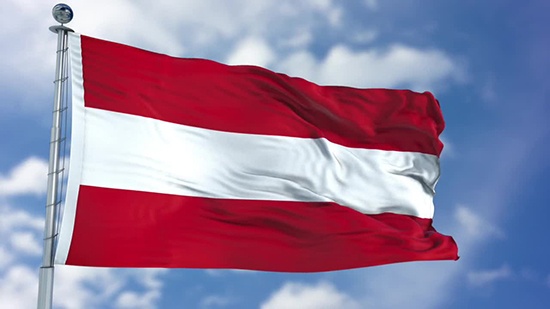News
Austria adopts anti-terror package, ‘preventive detention’ on hold

Following 2 Nov. attack:
In the wake of recent attack in Vienna that claimed the lives of four persons, Austria has adopted a security package to deal with terrorism. Austria made initial announcement a week after the Nov 2 attack blamed on a person described as an Islamist.
According to Austrian media, the government presented the package on Wednesday, Dec 16. In terms of the new package, the symbol law has been amended so that symbols of the right-wing extremist Identitarian Movement and those of some Islamist organizations could be banned; the media quoted Interior Minister Karl Nehammer as having said. The media also attributed stepped up electronic surveillance to Interior Minister Karl Nehammer and Justice Minister Alma Zadic.
However, the government refrained from adopting what it called preventive detention as part of overall security reforms for the time being.
The anti-terror package consists of following measures:
· Creation of a new criminal offense: The central component of the federal government’s new anti-terrorist package is the creation of a separate criminal offense to combat political Islam. The new paragraph 247b “Religiously motivated extremist association” in the Criminal Code is directed against organizations that fight the democratic constitutional order and want to replace it with a religiously based social and state order (such as the Sharia). According to the Criminal Code, anyone who establishes such an association, is a leader in such an association or otherwise participates in or supports it can now be punished.
Religiously motivated political extremism is becoming an aggravating factor under criminal law: A new aggravation factor for religiously motivated extremist motives is also being introduced. This should make it possible to take effective action against new forms of extremism.
· Radical mosques will be closed: Changes in the Islamic Law will create a new legal basis for closing radical mosques more quickly and easily. Specifically, in the future, the Office of Cultural Affairs should react much faster – and in particularly serious cases even without being asked to stop – and close mosques.
· Introduction of an imams’ directory: mosques and imams must be listed in a new directory. This directory will also include foreign imams and enables a transparent overview of which imam is preaching in which mosque, according to Integration Minister Susanne Raab (ÖVP). In this way, effective action can be taken against mosques that provide a platform for hate preachers from abroad. Sanctions are also planned for non-compliance.
· Stricter foreign financing ban: The foreign financing ban on mosques (Islam Law 2015) is now being tightened. In future, mosque institutions and the associations behind the mosques will be legally obliged to submit all financial documents. Here too, sanctions are planned for non-compliance.
· Improved data exchange: In addition, appropriate legal bases are created in order to improve the data and information exchange between the security authorities and the cultural office to implement these measures.